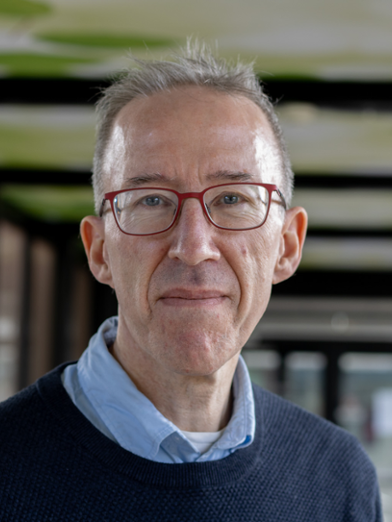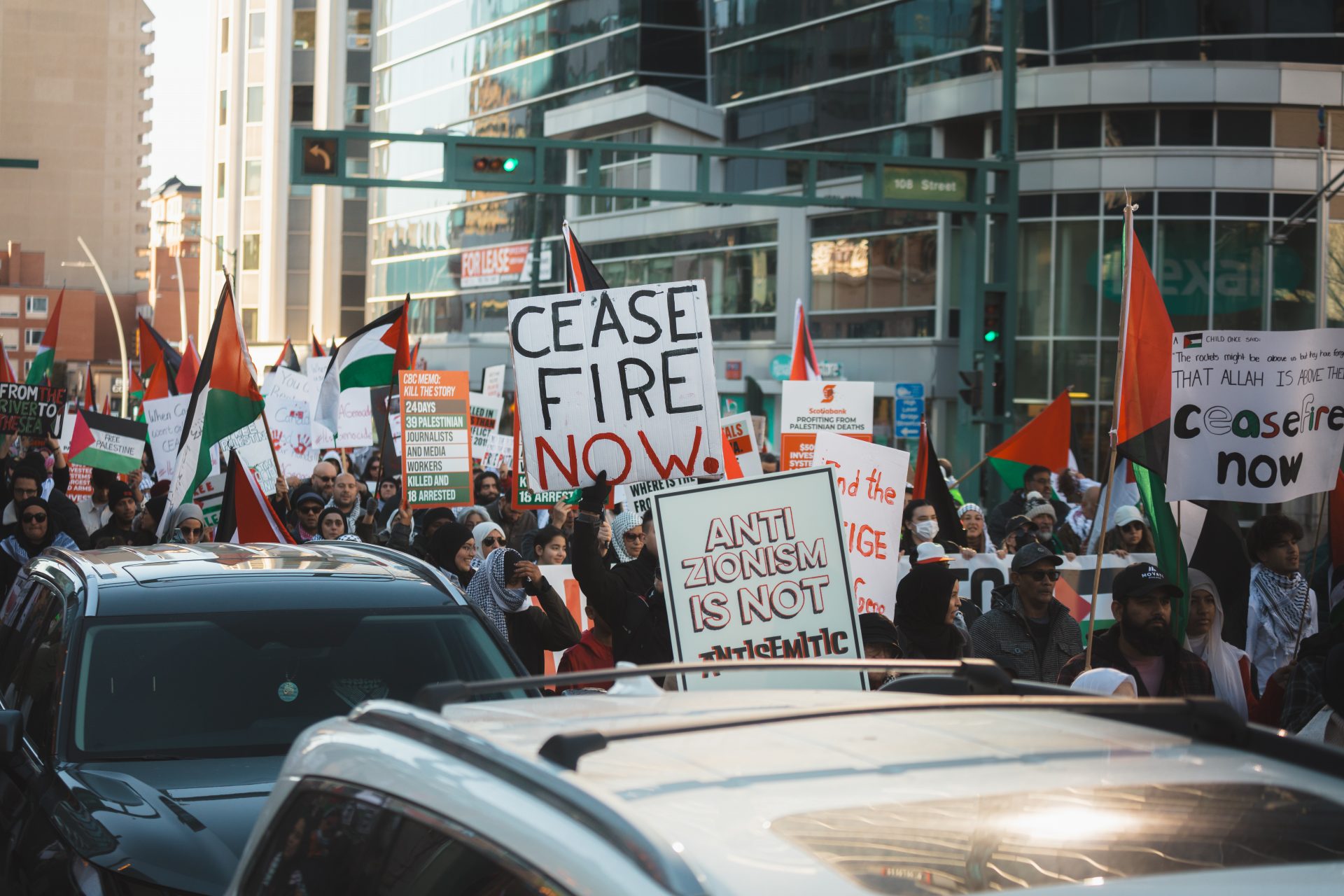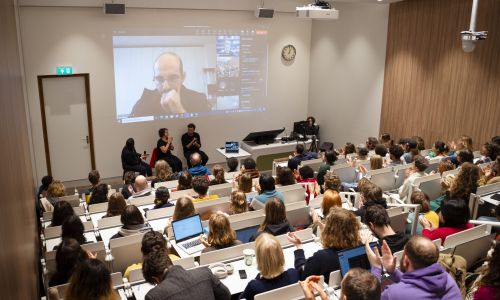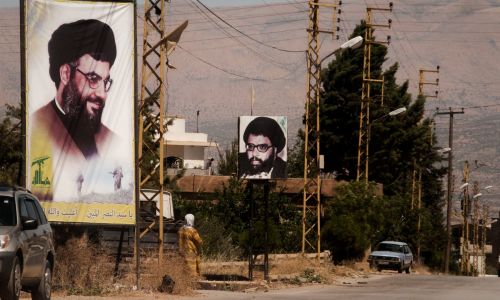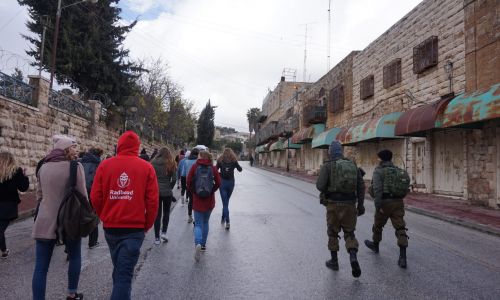Historian Remco Ensel on Israel and Palestine conflict: ‘Too much history can also block a future perspective’
-
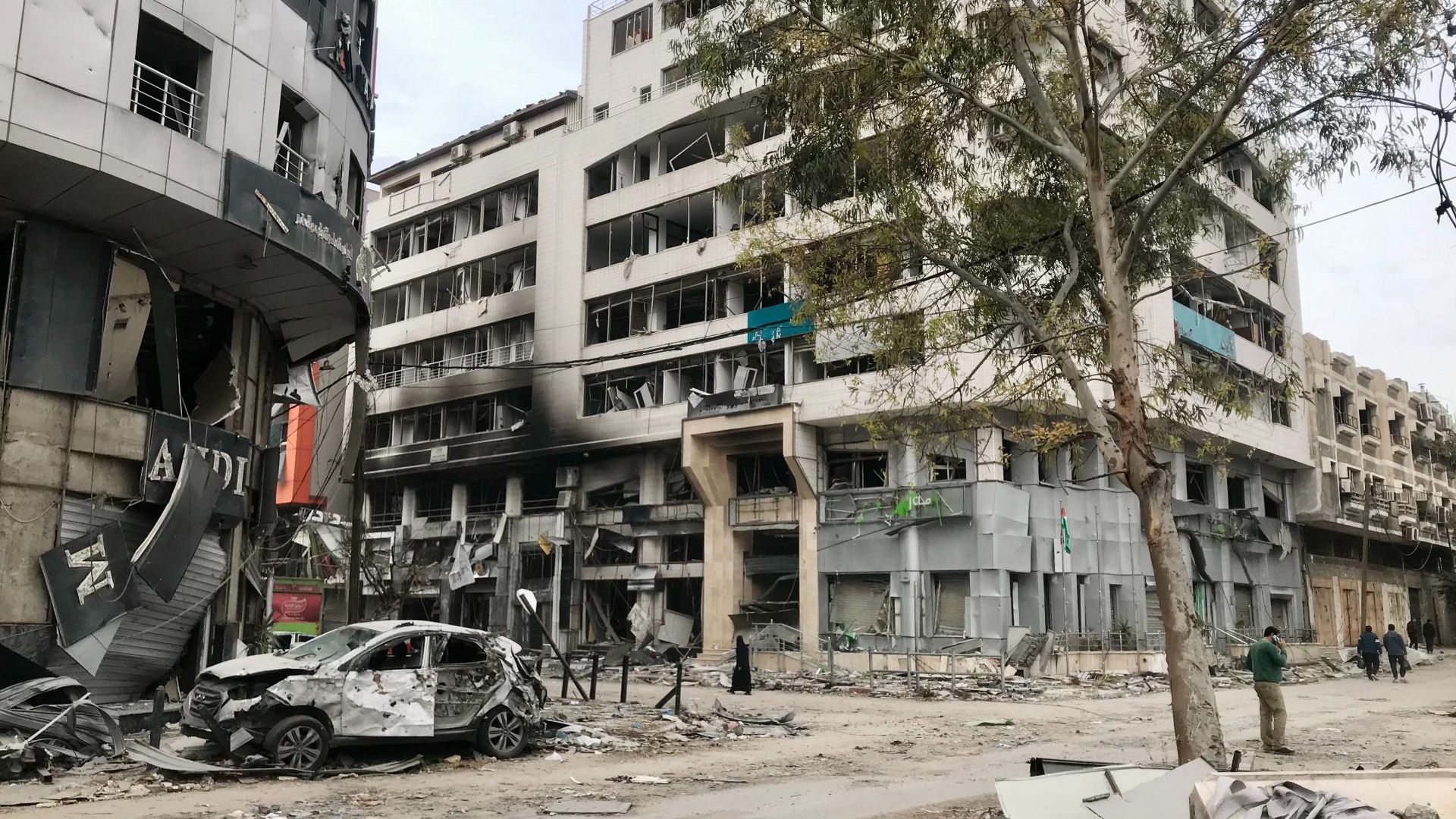 Scenes of devastation in Gaza, following an Israeli bombing. Photo by Emad-El-Byed, via Unsplash.
Scenes of devastation in Gaza, following an Israeli bombing. Photo by Emad-El-Byed, via Unsplash.
Almost two months after the attacks in Israel that escalated the conflict in Israel and Palestine, public opinion is split between pro-Israel and pro-Palestine stances – and debates are raging. Also at Radboud University, where a seminar series on Palestine recently led to public debates on academic freedom.
How does this conflict fit into a larger history of escalation and protest? Did it contribute to a rise in antisemitism? And how does one start a conversation about such a polarizing topic at university? Historian and expert on antisemitism and protest movements Remco Ensel sat down to discuss those questions.
As a historian, how do you look at a situation like the one in Israel and Palestine right now?
‘There have been so many conflicts everywhere in the 20th century, so many changes of national boundaries, so many population transfers that have been traumatic for the people involved. And many of these have been solved in some way. These conflicts have been met with forms of transitional justice: there have been reparations, repairs of citizenship, or financial aid. And it seems concerning the Israel/Palestine situation, almost nothing has happened with respect to that. To me, it has been the biggest failure of the international community to not come to some sort of transitional justice, some form of repair that would give some peace for the majority of Palestinians.’
So, where do we go from there?
‘I don’t have an answer to that, of course. I, however, think that compromise is necessary and will be very, very painful – and probably more painful for the Palestinians, as history shows. But there needs to be compromise – and that can only be done by some form of reparation or by a reestablishment of legal rights. And I know this is extremely difficult. However, too much history can also block a future perspective.’
At the same time, this conflict is of course part of a long history of conflict.
‘In these last months, I have been thinking about people who are solidary to the Palestinian cause – and of Jewish people in the Netherlands who have already for such a long time been concerned with conflict. For young students, this is the first and most fearful act of violence in this context, but for older generations, the situation right now has been one in a long list. I don’t want to relativize it because of that, but, of course, it’s part of a history.’
‘However, at the same time, history isn’t deterministic. I read one interview with an international relations expert where he was asked whether he was surprised by the conflict. And he said, ‘No, I wasn’t surprised, of course, I didn’t know that this was actually about to happen, but you did see it coming.’ Something along those lines. Because if there is so much pressure, something has to come out of it.’
‘It would be very difficult to argue against the rise of antisemitism right now’
‘That’s the kind of analysis I don’t like because it’s not actually an analysis, it’s a kind of gut feeling that you have. And that suggests that if there is enough oppression, people will resist. And there are many occasions in which people don’t resist, where they aren’t able to. That leaves the question of how the mobilisation of protest and political violence is actually organised unaddressed.’
You are an expert on antisemitism and the Holocaust. Do you think there has been a rise in antisemitism in light of this conflict?
‘It would be very difficult for me to argue against the rise of antisemitism right now. The incidents obviously rise, because they always rise when a conflict becomes more intense. But I’m not sure about a more middle- or long-term perspective. Also, is there a rise globally – or a rise in the Netherlands only?’
‘I think a conflict such as this obviously leads to much faster trends of all kinds of opinions and stereotypes and images and texts on Jews – and also on Muslims. At the same time, I think it also shouldn’t be underestimated – and that’s a euphemism, I suppose – that antisemitism is not just about words or images, it’s also about actual physical safety concerns. This conflict and the rise in antisemitism have caused great anxiety amongst Jews in the Netherlands.’
Right at the beginning of the conflict, you wrote an internal note for the university on a statement that was used in a protest on campus. Why did you write that note?
‘I was contacted, somewhere around the 10th of October, by the communication staff of the university. They had received two antisemitism claims because of that slogan – ‘From the river to the sea, Palestine will be free’ – being used in a protest and they wanted to check their position. So, they asked me to contextualize it. It was an early note on that slogan, this whole public discussion in the Netherlands came afterward.’
The slogan – ‘From the river to the sea’ – is often perceived as a genocidal dog whistle.
‘In any case, there is some debate about that. But many give that interpretation.’
How can you contextualize a slogan like that?
‘As a historian, I think of protest movements as a historical phenomenon. I think it’s interesting that certain grievances are put into certain words and these words change – and the way they are part of certain movements changes as well. You are not always the initiator of that, you become part of a movement of which you don’t always know the origins. So, for me, it’s important that when you have this slogan, you think about if this is the right one, to think about the historical roots of it.’
Some of the protestors right now might argue that the way they are using a slogan now is not how it has historically been used.
‘I do, of course, realize that just because something has historical roots doesn’t mean that it cannot change. Contemporary protests may find that this slogan, for example, exactly defines their intent. They might say that it only means that everybody needs to find peace within this region or that they strive for a one-state solution. But that being said, it becomes more difficult to maintain your own definition of a slogan like this when using it in a public context.’
‘I think there is a need amongst students to hear about other opinions, but also to express their own views’
So, you have to be careful, because other protestors might not have the same definition.
‘Maybe it’s not something you think of in the spur of the moment, but later on, you might ask yourself: how has this phrase actually come to me? Am I part of a transmission of certain political views that has brought that specific slogan to me that I’m not aware of?’
Do you think the university should have a more open discussion about this topic?
‘Yes, I think that would be important. I think there is a need amongst students to hear about other opinions and informed statements, but also to express their own views. At the same time, it doesn’t need to be the university that organizes lectures or seminar series, but the university could give it room for those conversations. I don’t think that they have to be afraid of having this type of public discussions or meetings when people come up with initiatives to organize them.’
